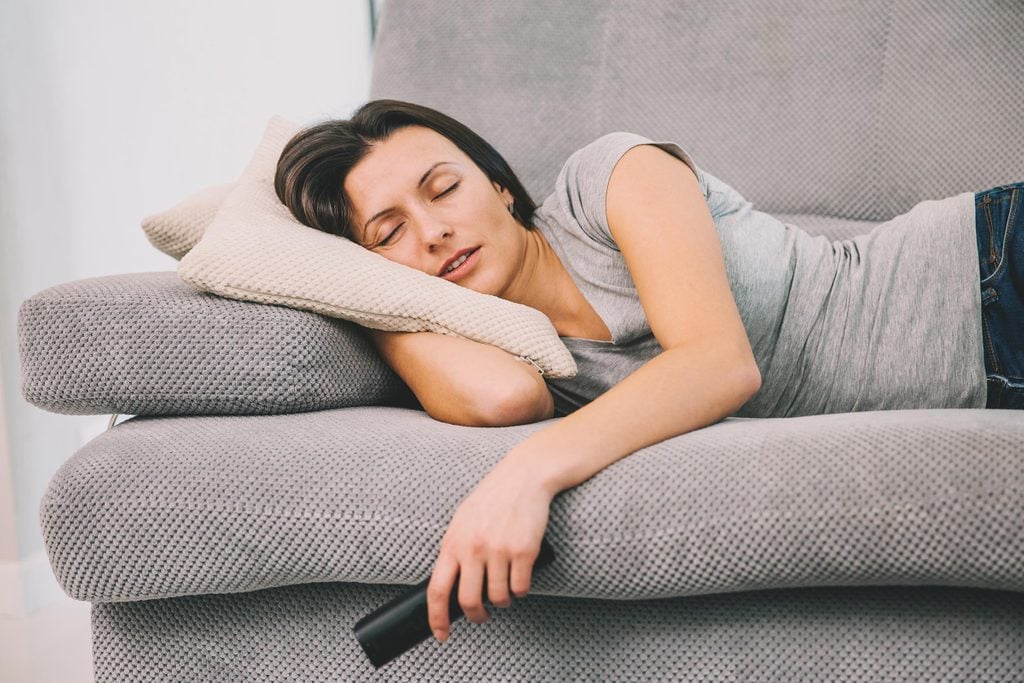Science Says Sleeping with This Device on Could Actually Make You Gain Weight
Updated: Aug. 22, 2022

If you're prone to leaving on late night while you start to snooze, it could be causing more problems than a poor night's sleep. Tune in to learn why you should tune out.
Relaxing to the laughs on Jimmy Fallon or binging the Real Housewives of Beverly Hills may help you drift off to sleep, but if you leave the TV on all night, you could be doing real damage to your waistline.
In a 2019 study, scientists at the National Institute of Health analyzed health and lifestyle data of 43,722 U.S. women aged 35 to 74. While women who used a small nightlight were found to maintain their weight, those who dozed with light or television on were 17% more likely to have packed on 11 pounds over the course of the five-year period.
Get The Healthy @Reader’s Digest newsletter
The scientists speculated that the sleep hormone melatonin was suppressed when the artificial light from the TV disrupted the women’s circadian rhythms. Other factors may have played a role in the weight gain results as well, though the study results were controlled for age, race, socioeconomic status, calories consumed, physical activity and having an older spouse or children in the home,
10 Ways to Naturally Reset Your Sleep Cycle
“Although poor sleep by itself was associated with obesity and weight gain, it did not explain the associations between exposure to artificial light while sleeping and weight,” said corresponding author Dale Sandler, PhD, chief of the Epidemiology Branch at the National Institute of Environmental Health Sciences (NIEHS), part of NIH, in a press release.
“Unhealthy high-calorie diet and sedentary behaviors have been the most commonly cited factors to explain the continuing rise in obesity,” notes Lead author Yong-Moon (Mark) Park, M.D., PhD. “This study highlights the importance of artificial light at night and gives women who sleep with lights or the television on a way to improve their health.”
For more wellness updates, follow The Healthy on Facebook, Instagram, and Twitter. Keep reading:

